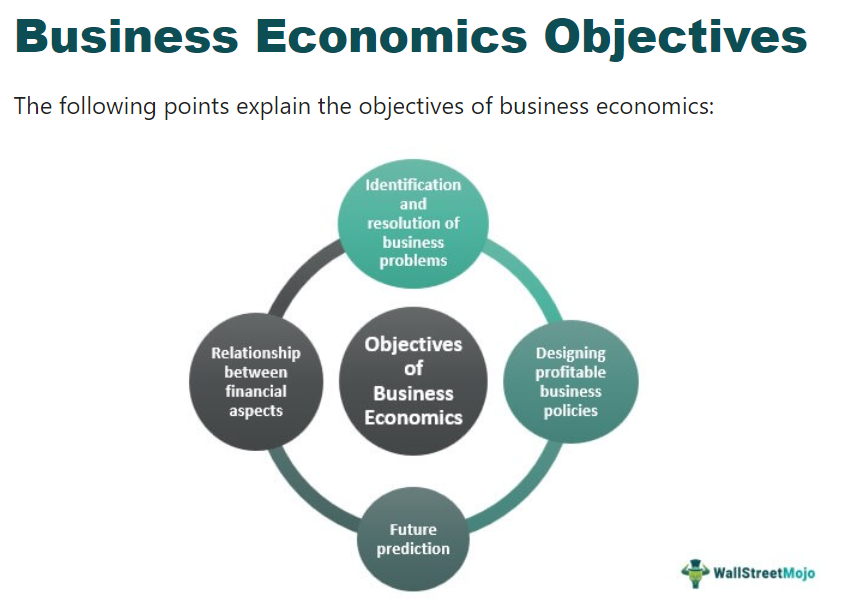Exploring the Role of Progress in Business and Economics Currently
Exploring the Role of Progress in Business and Economics Currently
Blog Article
Business and Business Economics 101: Essential Knowledge for Striving Leaders
In today's swiftly progressing business landscape, aiming leaders have to cultivate a thorough understanding of essential calculated frameworks and financial concepts. Mastering principles such as supply and need, market structures, and competition is not simply academic; these aspects are vital in forming effective decision-making and cultivating advancement. Furthermore, economic proficiency-- specifically in cash flow management-- acts as a cornerstone for sustainable development. As we check out these necessary subjects, it ends up being noticeable that the crossway of service acumen and financial understanding is essential for future leaders to not just thrive however make it through in their ventures. What ramifications does this have for calculated leadership?
Understanding Supply and Demand
Supply and need are essential concepts that consistently underpin the mechanics of any kind of market economic climate. The connection between these 2 forces identifies the price of solutions and items as well as their schedule on the market. Supply describes the quantity of an item that producers are ready and able to offer at numerous cost levels, while need shows the amount that consumers agree and able to acquire.
When need raises without a corresponding surge in supply, rates often tend to increase, indicating manufacturers to enhance result. On the other hand, if supply overtakes need, prices might drop, triggering producers to decrease result. This dynamic interaction helps to attain market stability, where the amount provided matches the amount demanded at a specific cost factor.

Exploring Market Frameworks
Market structures specify the affordable setting in which organizations operate, considerably affecting their pricing techniques, outcome levels, and general earnings. Understanding these structures is important for striving leaders, as they form service choices and market characteristics.
There are four primary sorts of market frameworks: perfect competition, monopolistic competition, oligopoly, and syndicate. In a perfectly open market, various companies supply the same items, causing price-taking actions. Monopolistic competitors attributes lots of companies offering separated products, enabling some pricing power. Oligopolies are composed of a couple of leading firms that can affect market value, often bring about strategic interactions and competitive actions. Finally, syndicates exist when a single firm manages the market, resulting in the highest degree of rates power and possible market ineffectiveness.
Each market framework offers unique challenges and opportunities for organizations. Leaders must comprehend these subtleties to properly position their companies, create affordable techniques, and react to market changes. By comprehending the ramifications of various market frameworks, striving leaders can make enlightened choices that drive their organizations towards lasting success and development in an ever-evolving economic landscape.
Financial Concepts for Leaders
Efficient management in business necessitates a strong understanding article of financial principles, as they underpin strategic decision-making and source allowance. Leaders need to understand vital ideas such as money flow administration, success analysis, and financial projecting. These components are crucial in examining a company's economic health and leading its future direction.
Capital monitoring is particularly important; it ensures that the company keeps adequate liquidity to meet its responsibilities while seeking growth possibilities. Examining productivity permits leaders to determine which service or products yield the greatest returns, making it possible for enlightened financial investment choices. Additionally, monetary forecasting helps anticipate future incomes and costs, promoting more exact budgeting and resource allocation.
Moreover, understanding financial declarations-- such as balance sheets, revenue declarations, and capital statements-- gears up leaders with the insights required to make educated selections. This knowledge promotes responsibility and openness, improving stakeholder trust fund.
In today's dynamic business environment, leaders must be adept at analyzing economic data to react promptly to market adjustments. Inevitably, a strong understanding of monetary principles empowers leaders to drive their companies toward lasting success while efficiently managing risks and sources.
The Duty of Competitors
Comprehending the function of competition is vital for any type of business intending to thrive in a saturated market. Competitors drives advancement and performance, engaging companies to improve their services and products consistently. In an affordable landscape, companies must distinguish themselves to bring in and retain customers. This distinction can manifest via remarkable top quality, distinct attributes, or outstanding customer support.
Additionally, competitors can result in far better prices methods. As companies try market share, they are incentivized to use competitive prices, benefiting customers while challenging businesses to take care of prices properly. This like it dynamic fosters a society of consistent enhancement, pushing organizations to improve procedures and enhance value suggestions.
Additionally, competitors can promote market development by encouraging brand-new participants. New businesses usually present fresh concepts and strategies, further improving the general market landscape. Companies have to also be vigilant; excessive competition can lead to market saturation, minimizing productivity for all players included.
Inevitably, understanding and browsing competition is essential for leaders. By acknowledging its complex role, striving leaders can make educated decisions that place their organizations for lasting success in an ever-evolving industry.
Strategic Decision-Making
In the realm of company, calculated decision-making is essential to adapting and accomplishing long-lasting purposes to transforming conditions. This process includes assessing different choices and picking one of the most efficient course of activity that lines up with the organization's vision and goals. Effective critical decision-making needs a detailed understanding of both external and inner atmospheres, consisting of market patterns, competitive dynamics, and business capacities.
Leaders should gather appropriate information, examine it critically, and forecast possible outcomes. In addition, evaluating risks associated with each different allows leaders to create and expect difficulties backup plans.
Inevitably, successful calculated decision-making empowers companies to browse complexities, utilize chances, and react proactively to dangers. By cultivating a culture that values informed decision-making, organizations position themselves to introduce and maintain an affordable edge in an ever-evolving service landscape. Aspiring leaders need to sharpen these abilities, as their capability to make audio strategic decisions will substantially affect their organizations' success and sustainability.

Verdict
To conclude, a solid grasp of organization and business economics principles is crucial for aiming leaders. Expertise of supply and demand, market frameworks, and financial principles fosters informed efficient and decision-making source allotment. Comprehending the function of competition additional improves critical thinking, enabling leaders to navigate intricate market dynamics. Eventually, this foundational knowledge outfits future leaders to innovate and line up business strategies with progressing market problems, paving the method for sustained success and success.
Comprehending these principles is essential for aspiring service leaders, as they create the structure for efficient decision-making in prices, source appropriation, and market technique. Comprehending supply and need equips leaders to browse the complexities of see post market changes and consumer actions.
Syndicates exist when a single firm regulates the market, resulting in the highest possible level of prices power and possible market inefficiencies.
By comprehending the effects of various market structures, striving leaders can make educated decisions that drive their businesses toward lasting success and growth in an ever-evolving financial landscape.
Understanding the function of competitors further boosts strategic thinking, allowing leaders to navigate complex market characteristics.
Report this page